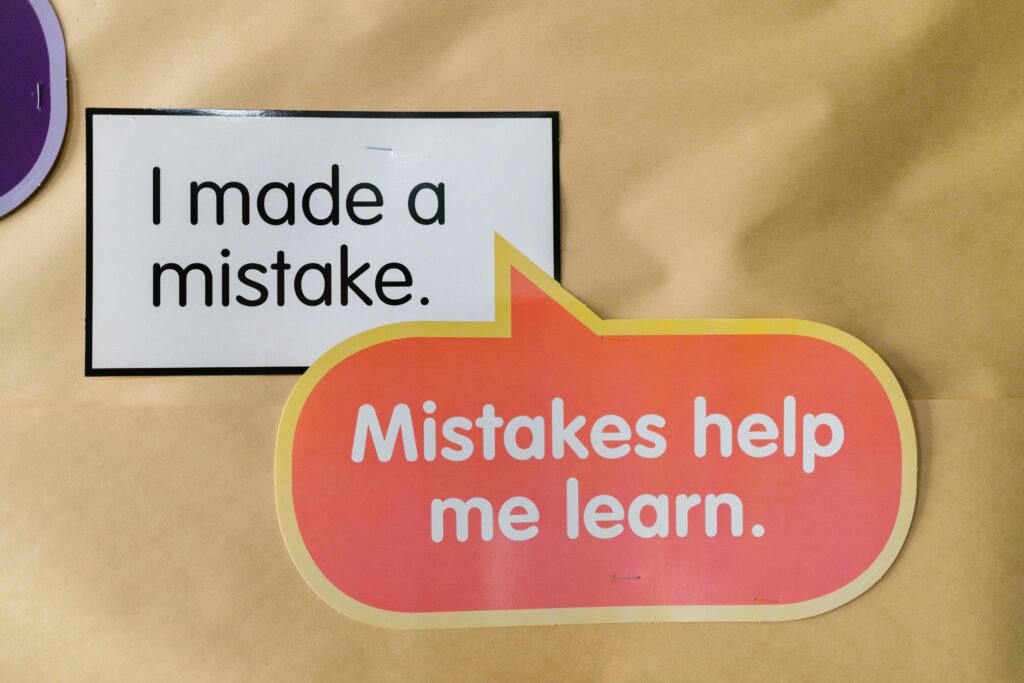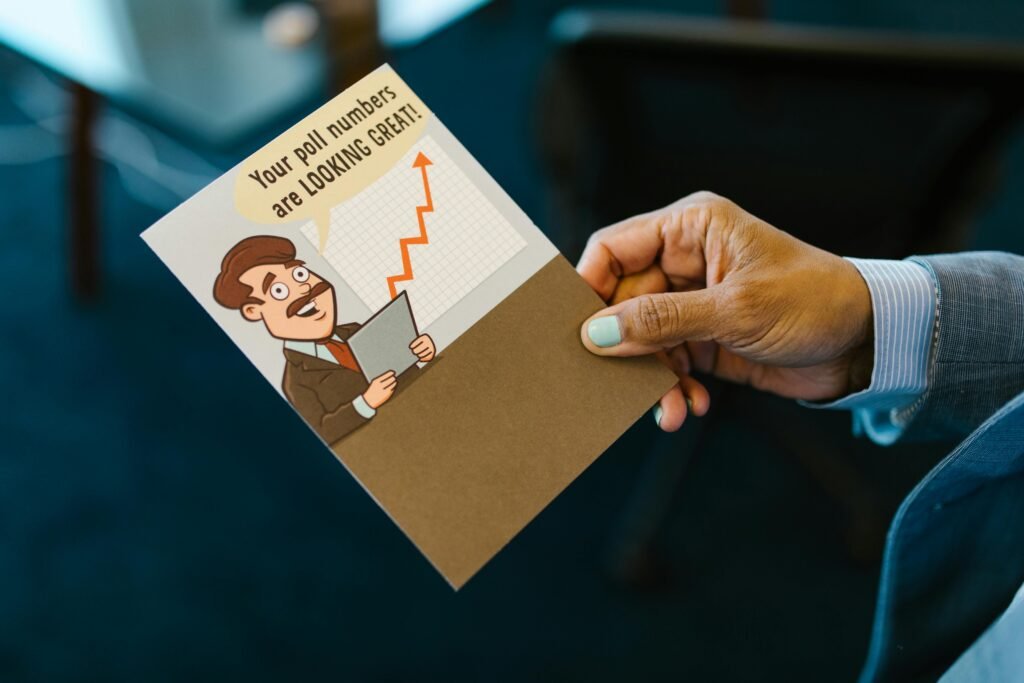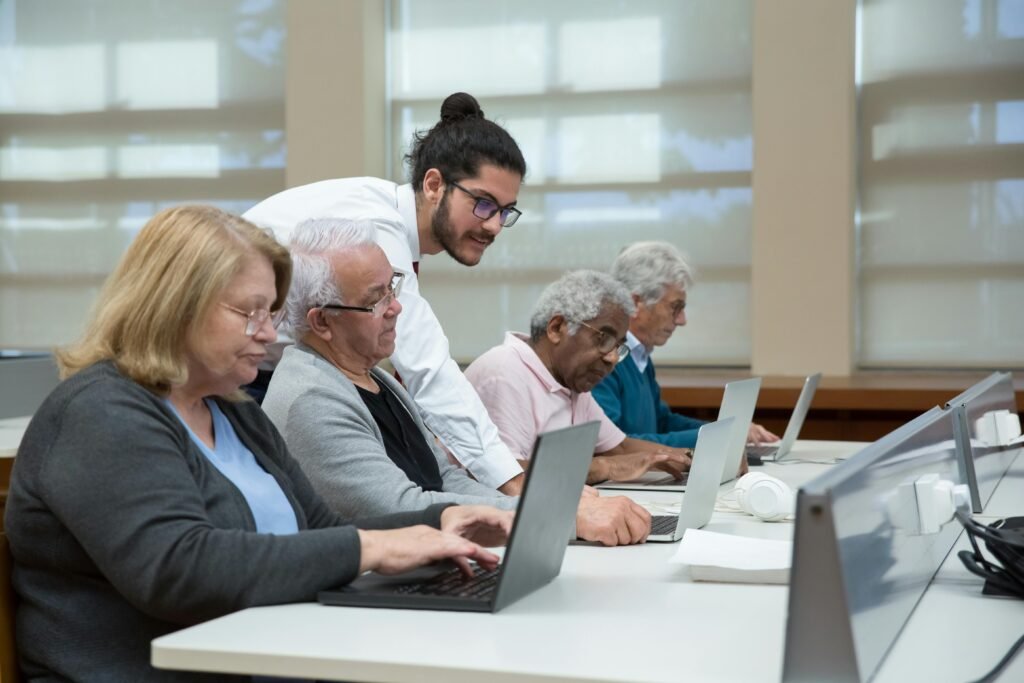
Introducing the Concept of a Growth Mindset
The idea of a growth mindset is becoming increasingly popular in both educational and professional settings.
It revolves around the belief that our abilities and intelligence can be nurtured and enhanced through consistent effort and dedication.
Unlike a fixed mindset, which holds that our talents are static and predetermined, a growth mindset encourages us to see our potential as expandable.
This perspective empowers us to embrace learning and view setbacks not as failures but as stepping stones on the path to improvement.
So, what exactly defines a growth mindset?
At its essence, it’s about understanding that our brains are malleable and capable of remarkable development.
Studies have shown that people with a growth mindset are more likely to persevere in the face of challenges because they believe their efforts will yield positive results.
This isn’t just motivational fluff; it’s backed by scientific evidence demonstrating that when we engage in tasks with the mindset that we can improve, we actually do.
Consider an athlete who initially struggles with a new technique.
Instead of giving up, they focus on practice and incremental progress.
Over time, their dedication pays off as they master the technique, showcasing the principle that skills can be honed with effort.
Another example might be an artist experimenting with a new medium.
Despite initial frustrations, their willingness to persist and learn from each attempt leads to impressive growth in their artistic abilities.
Furthermore, adopting a growth mindset can have a transformative impact on how we approach our personal and professional lives.
It encourages us to be more resilient, more open to feedback, and more inclined to take risks.
Whether it’s a student tackling a tough subject, a professional aiming for a promotion, or someone learning a new hobby, a growth mindset shifts the focus from fearing failure to celebrating progress.
It’s this shift that ultimately makes the journey of growth so fulfilling.
Techniques for Personal Reflection

To nurture a growth mindset, incorporating personal reflection into your daily routine is invaluable.
One effective technique is maintaining a growth mindset journal.
By recording your thoughts and experiences related to learning, you can track your progress, recognize patterns, and pinpoint areas that need improvement.
Reflecting on these entries allows you to see how far you’ve come and what steps you can take to advance further.
Mindfulness practices also play a crucial role in fostering a growth mindset.
By taking time each day to sit quietly and observe your thoughts and emotions without judgment, you can gain deeper insights into how you react to challenges.
This heightened self-awareness enables you to respond more adaptively, enhancing your resilience and problem-solving abilities.
For example, you might notice that you tend to avoid difficult tasks due to fear of failure.
With this awareness, you can consciously decide to face these tasks head-on, gradually diminishing the fear.
Setting specific, achievable goals is another powerful tool for personal reflection.
Instead of vague ambitions like “get better at math,” opt for precise targets such as “complete three additional algebra problems each day.”
This approach not only makes your goals more manageable but also provides clear markers of your progress, reinforcing the belief that effort leads to improvement.
Another beneficial practice is seeking feedback from others.
Constructive feedback offers a different perspective on your performance and highlights areas you might overlook.
Engage with mentors, peers, or professionals who can provide honest and actionable insights.
By integrating this feedback into your reflective practices, you can devise more effective strategies for personal growth.
Additionally, engage in regular self-assessment.
Periodically evaluate your skills and knowledge in various areas.
Use tools like checklists or self-assessment quizzes to gauge your competencies and identify gaps.
This ongoing evaluation helps you stay aligned with your growth objectives and ensures that you’re continually moving forward.
Finally, celebrate your successes, no matter how small.
Acknowledging your achievements reinforces positive behaviors and motivates you to keep pushing boundaries.
Recognize each step forward as a testament to your dedication and growth mindset, and let these moments fuel your journey of continuous improvement.
Learning Through Mistakes

Mistakes are often seen as roadblocks, but in a growth mindset, they’re viewed as essential learning experiences.
Research indicates that individuals with a fixed mindset might react to failure by cheating or finding comfort in the mistakes of others, rather than using the opportunity to deepen their understanding (Dweck, 2006).
Conversely, those with a growth mindset exhibit greater brain activity when confronted with errors, indicating a higher level of engagement and learning (Moser et al., 2011).
For instance, imagine a student struggling with math problems.
Instead of feeling defeated, they persist in practicing and exploring different problem-solving strategies.
Over time, their understanding deepens, and their grades improve, illustrating the positive impact of perseverance.
In another scenario, consider an aspiring writer who receives critical feedback on their manuscript.
Instead of taking it personally, they analyze the critiques and work diligently to refine their writing.
This process not only enhances their skills but also boosts their confidence in their abilities.
Mistakes can also be powerful in professional settings.
Picture a project manager who oversees a complex initiative that doesn’t meet its goals.
By conducting a thorough post-mortem analysis, they identify what went wrong and apply those lessons to future projects.
This reflective practice not only prevents repeat errors but also cultivates a culture of continuous improvement within the team.
Another compelling example is that of a scientist conducting experiments.
When initial hypotheses fail, the scientist doesn’t abandon the research.
Instead, they delve into the data to uncover new insights, often leading to groundbreaking discoveries.
This iterative process of trial and error is fundamental to scientific advancement and exemplifies the growth mindset in action.
By embracing mistakes and learning from them, individuals not only enhance their skills but also build resilience and adaptability.
This shift in perspective allows for a more enriching and productive journey toward personal and professional growth.
The Role of Feedback in Personal Growth

Feedback is an invaluable tool for personal development, acting as a mirror that reflects our strengths and areas for improvement.
It offers an external perspective that we might overlook in our self-assessments.
When we approach feedback with a growth mindset, we view it not as criticism but as constructive guidance that can propel us forward.
Consider an example from the workplace: a team leader receives feedback that their communication could be clearer.
Instead of feeling defensive, they take this insight seriously and actively work on enhancing their communication skills.
As a result, team collaboration improves, and projects run more smoothly.
This scenario illustrates how feedback, when embraced positively, can lead to significant improvements in professional performance.
Similarly, athletes often rely on feedback from coaches to fine-tune their techniques.
A swimmer, for instance, might be told that their stroke needs adjustment to increase speed.
By acting on this feedback, the swimmer refines their technique, leading to better performance in competitions.
This process highlights the importance of viewing feedback as a tool for continual improvement.
In educational settings, students benefit immensely from constructive feedback.
Imagine a student who receives detailed comments on their essay.
Instead of focusing on the critique as a negative, they use the feedback to enhance their writing skills, resulting in higher grades and a deeper understanding of the subject matter.
This demonstrates how feedback can foster academic growth and a love for learning.
Musicians also thrive on feedback to perfect their craft.
A pianist might receive tips from an instructor on how to better express emotions through their performance.
By incorporating this feedback, the musician adds depth to their playing, captivating audiences even more.
This example underscores the role of feedback in artistic development.
Moreover, feedback can aid in personal relationships.
Suppose someone is told by friends that they need to be more empathetic.
By taking this to heart and working on being more understanding, they strengthen their friendships and become a better communicator.
This personal growth enhances their social interactions and emotional intelligence.
Ultimately, feedback serves as a crucial element in our journey toward growth, providing actionable insights that help us evolve in various aspects of life.
Embracing Difficulties

Embracing challenges is a cornerstone of developing a growth mindset.
When individuals are encouraged to step outside their comfort zones and tackle difficult tasks, they form new and stronger connections in their brains (Yeager & Dweck, 2012).
This approach not only leads to better performance but also equips them with the resilience needed to handle life’s various challenges.
Take, for example, an entrepreneur who faces numerous obstacles while trying to launch a startup.
By embracing these difficulties and viewing them as opportunities for growth, they develop innovative solutions and ultimately succeed, demonstrating the transformative power of persistence.
Another compelling example can be found in the experiences of students in a rigorous academic setting.
When students are given challenging assignments, they often experience initial frustration.
However, with support and encouragement to push through these difficulties, they end up mastering complex concepts, leading to improved academic performance and a more profound sense of accomplishment.
This approach not only enhances their intellectual abilities but also builds their confidence in tackling future challenges.
Consider the story of a professional dancer who encounters a particularly difficult routine. Rather than shying away from the challenge, they commit to additional practice and seek feedback from their instructor.
Over time, their hard work pays off as they perfect the routine, showcasing how embracing difficulties can lead to significant improvements in skill and performance.
In the corporate world, a project manager might be tasked with leading a high-stakes project with tight deadlines.
Faced with numerous setbacks, they could choose to view these challenges as insurmountable.
Instead, by approaching each obstacle as an opportunity to learn and grow, they can devise creative solutions and lead their team to success.
This mindset fosters a culture of continuous improvement and adaptability within the team, benefiting both the individuals and the organization as a whole.
In essence, embracing difficulties not only enhances our skills but also cultivates resilience, adaptability, and a deeper appreciation for the growth process itself.
Recognizing Effort

Recognizing effort over innate ability is fundamental in fostering a growth mindset. When we celebrate the process—such as effort, strategies, and perseverance—instead of focusing solely on intelligence or talent, we build resilience (Dweck, 2007).
Take the story of a young athlete, for example.
Through consistent hard work and dedication, they enhance their performance and achieve success.
This example showcases how emphasizing effort can inspire individuals to keep pushing toward their goals.
When coaches or parents highlight the hours spent practicing and the determination to improve, the athlete becomes more motivated to continue working hard.
Consider a student grappling with a challenging subject.
Rather than saying, “You’re so smart,” a teacher who acknowledges the student’s effort by saying, “I can see how much time you put into studying, and it’s paying off,” reinforces the value of hard work.
This kind of praise encourages students to adopt effective learning strategies and remain persistent, even when facing difficulties.
In the workplace, recognizing effort can also be transformative.
Suppose a project team has been working tirelessly to meet a tight deadline.
Acknowledging their dedication and teamwork, rather than just the final outcome, can boost morale and foster a culture of continuous improvement.
Employees who feel their hard work is valued are more likely to remain engaged and motivated.
Artists, too, benefit from recognition of their effort.
When an artist’s incremental progress and dedication to their craft are celebrated, they are encouraged to keep experimenting and refining their skills.
This positive reinforcement fuels their creativity and perseverance, leading to greater artistic achievements.
Overall, focusing on effort over innate ability not only motivates individuals to continue striving toward their goals but also helps them develop resilience and a love for learning.
By celebrating the journey rather than just the destination, we foster a culture of growth and continuous improvement.
The Pursuit of Lifelong Learning

A growth mindset isn’t just about bouncing back from setbacks; it’s about continually expanding your horizons.
This perspective on lifelong learning opens the door to endless opportunities for personal and professional development. Take, for example, a Chicago high school where students who didn’t pass a course received a grade of “Not Yet.”
This innovative approach indicated that they were on a learning curve, setting the stage for future success (Dweck, 2010).
Such practices underscore the belief that mastery comes with persistent effort, not innate talent.
Lifelong learning isn’t confined to formal education; it permeates all aspects of life.
Consider an engineer who consistently takes online courses to stay updated with the latest technological advancements.
Their commitment to learning not only sharpens their skills but also keeps them adaptable in a rapidly changing industry.
Similarly, a retiree who picks up a new hobby, like painting or playing a musical instrument, experiences personal growth that enriches their later years.
Professional development also benefits from a growth-oriented approach to learning.
Employees who seek out workshops, seminars, or additional certifications often find themselves better equipped to handle complex tasks, thereby advancing their careers.
This proactive attitude fosters a workplace culture that values continuous improvement and innovation.
Moreover, lifelong learning nurtures curiosity and creativity.
Artists who explore new mediums or techniques discover fresh avenues for expression.
This not only enhances their artistic capabilities but also keeps their work vibrant and engaging.
In essence, lifelong learning fuels a growth mindset by encouraging us to seek out new knowledge and experiences continually.
This journey of perpetual learning helps us remain curious, resilient, and ever-evolving, ready to meet the challenges and opportunities that life presents.
Conquering Self-Imposed Barriers

Self-imposed barriers often stem from limiting beliefs that constrain our potential.
Carol Dweck’s research emphasizes that adopting a growth mindset fosters persistence and resilience, as it helps individuals realize that their abilities can develop over time (Dweck, 2016).
Consider a person who believes they lack creativity.
By shifting to a growth mindset, they begin to see creativity as a skill that can be cultivated through practice and exploration.
They start engaging in creative exercises, seeking feedback, and gradually building their confidence.
Over time, what once seemed like an insurmountable barrier becomes a field of newfound capability and innovation.
In another scenario, an employee might feel they’re not leadership material.
This self-imposed limitation can be dismantled by taking small steps toward leadership responsibilities.
Volunteering for team projects, seeking mentorship, and continuously learning about effective leadership practices can transform their self-perception and skill set, leading to new opportunities and career growth.
Students, too, often grapple with self-imposed barriers.
Imagine a student convinced they’re not good at public speaking. Instead of avoiding presentations, they choose to practice, gather feedback, and learn from each experience.
As their skills improve, so does their confidence, turning a former weakness into a strength.
Another powerful example involves individuals who doubt their physical fitness capabilities.
By setting achievable fitness goals, tracking progress, and celebrating small victories, they gradually overcome their self-doubt and achieve levels of fitness they once thought impossible.
Breaking down these barriers requires a commitment to self-reflection and a willingness to challenge the status quo.
By recognizing that our limitations are often self-imposed, we can begin to dismantle them, paving the way for growth, resilience, and an enriched sense of self.
